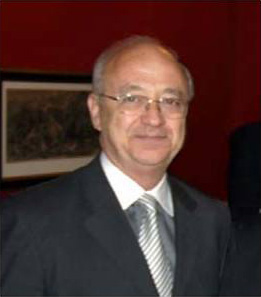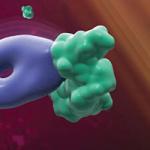
George Kunos, M.D., Ph.D.
Senior Investigator
Laboratory of Physiologic Studies; Section of Neuroendocrinology
NIAAA
Scientific Director
NIAAA
Research Topics
Current research in my laboratory is focused on the biology of endocannabinoids (lipid mediators that activate the same G protein-coupled cannabinoid (CB) receptors that recognize THC, the psychoactive ingredient of marijuana), particularly their role in the regulation of metabolism, cardiovascular functions and appetitive behavior, including alcohol drinking behavior. Our group discovered that endocannabinoids acting at CB1 receptors promote appetite as components of the leptin-regulated hypothalamic neural circuitry (Nature 2001, cited ~900 times). The orexigenic role of endocannabinoids served as the basis for the pharmaceutical development of CB1 antagonists as potential treatment for obesity and its metabolic complications. Despite favorable metabolic effects (reduction in body weight and liver fat, improved insulin sensitivity and plasma lipid profile), this line of therapy was abandoned due to neuropsychiatric side effects of CB1 antagonists. We found, however, that the metabolic effects of CB1 blockade are mediated largely via CB1 receptors in peripheral tissues, including the liver (J Clin Invest 2005, cited > 500 times, J Clin Invest 2008), whereas the receptors responsible for the side effects are located in the CNS. This led to the development of non-brain-penetrant CB1 antagonists, which in rodent models have potent antiobesity and antidiabetic effects, but are devoid of behavioral side effects (J Clin Invest 2010; Cell Metabolism 2012; Nature Med 2013). We test our hypotheses using both in vivo and in vitro test systems and a broad range of genetic, molecular biological and biochemical techniques. We are also interested in translational approaches: clinical development of a peripheral CB1 antagonist is currently underway with support from the National Center for Advancing Translational Science (NCATS).
Biography
George Kunos received his MD from Semmelweis University (gold medalist) in Budapest, Hungary, and a Ph.D. in pharmacology from McGill University in Montreal, Canada, in Mark Nickerson's lab. He stayed on as faculty at McGill and rose to Professor of Pharmacology and Medicine until 1987, when he was recruited to the NIH as Laboratory Chief at the National Institute on Alcohol Abuse and Alcoholism (NIAAA). In 1992 he became Professor and Chair of the Department of Pharmacology & Toxicology at Virginia Commonwealth University in Richmond, VA. He returned to NIH in 2000 as Scientific Director of NIAAA where he is also Chief of the Laboratory of Physiologic Studies. He is an elected Fellow of the American Heart Association and a foreign member of the Hungarian Academy of Sciences.
Selected Publications
- Godlewski G, Cinar R, Coffey NJ, Liu J, Jourdan T, Mukhopadhyay B, Chedester L, Liu Z, Osei-Hyiaman D, Iyer MR, Park JK, Smith RG, Iwakura H, Kunos G. Targeting Peripheral CB1 Receptors Reduces Ethanol Intake via a Gut-Brain Axis. Cell Metab. 2019;29(6):1320-1333.e8.
- Tam J, Vemuri VK, Liu J, Bátkai S, Mukhopadhyay B, Godlewski G, Osei-Hyiaman D, Ohnuma S, Ambudkar SV, Pickel J, Makriyannis A, Kunos G. Peripheral CB1 cannabinoid receptor blockade improves cardiometabolic risk in mouse models of obesity. J Clin Invest. 2010;120(8):2953-66.
- Jourdan T, Szanda G, Cinar R, Godlewski G, Holovac DJ, Park JK, Nicoloro S, Shen Y, Liu J, Rosenberg AZ, Liu Z, Czech MP, Kunos G. Developmental Role of Macrophage Cannabinoid-1 Receptor Signaling in Type 2 Diabetes. Diabetes. 2017;66(4):994-1007.
- Tam J, Cinar R, Liu J, Godlewski G, Wesley D, Jourdan T, Szanda G, Mukhopadhyay B, Chedester L, Liow JS, Innis RB, Cheng K, Rice KC, Deschamps JR, Chorvat RJ, McElroy JF, Kunos G. Peripheral cannabinoid-1 receptor inverse agonism reduces obesity by reversing leptin resistance. Cell Metab. 2012;16(2):167-79.
- Jourdan T, Godlewski G, Cinar R, Bertola A, Szanda G, Liu J, Tam J, Han T, Mukhopadhyay B, Skarulis MC, Ju C, Aouadi M, Czech MP, Kunos G. Activation of the Nlrp3 inflammasome in infiltrating macrophages by endocannabinoids mediates beta cell loss in type 2 diabetes. Nat Med. 2013;19(9):1132-40.
Related Scientific Focus Areas


Molecular Biology and Biochemistry
View additional Principal Investigators in Molecular Biology and Biochemistry

This page was last updated on Monday, July 24, 2023